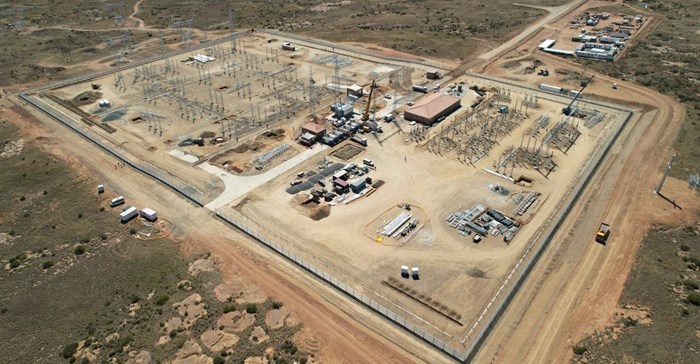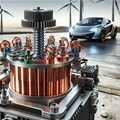EDF Renewables is driving South Africa's renewable energy transition with an intensive construction programme. The company is building nearly 1.2GW of low-carbon power capacity, including wind, solar, and battery storage, across eight sites in the Northern and Eastern Cape.

Main transmission station (MTS) for Koruson 1 and Koruson 2 under construction
"Our projects will contribute towards meeting the energy needs of South Africans, both through government programmes and through private channels for Anglo American mines via our joint trader Envusa Energy," said Tristan de Drouas, CEO of EDF Renewables.
"These constructions will have a visible impact on the current power shortage, which is very good news for the country, and a source of pride for the teams. They are a tangible illustration of the EDF Group's capabilities to deliver low-carbon energy solutions in South Africa."
This massive program, developed with key partners, reached financial agreements between November 2022 and February 2024. EDF Renewables' projects are rapidly moving forward to help ease South Africa's crippling energy deficit.
The following projects are at the forefront:
Koruson 1: A cluster of three wind farms (Phezukomoya, San Kraal, and Coleskop) with a total capacity of 420MW, developed in partnership with H1 Holdings, GIBB-Crede, and a local community trust.
Koruson 2: A collaboration with Anglo American via their joint venture Envusa Energy.
This project includes wind and solar farms with 520MW total generation capacity, with investments from Pele Green Energy and a local community trust.
Umoyilanga Hybrid Power Plant: A partnership with Perpetua Holdings. This innovative "virtual power plant" will combine 115MW solar, 63MW wind, and 75MW battery storage over two geographically separate sites delivering 75MW of dispatchable power.
Accelerating energy progress
The combined investment across these projects totals R34bn. This influx of resources has quickly mobilised construction, targeting commercial operation between 2024 and 2026.
Once complete, these power plants are expected to provide close to 4TWh of low-carbon power to the national grid annually.
For context, Eskom, South Africa's power utility, reported a 14.4TWh energy shortage in 2023.
This new renewable capacity demonstrates a significant acceleration of renewable energy deployment after less than 1GW of utility-scale projects were commissioned since 2020.
These projects directly create jobs, stimulate small businesses, and utilise South African goods and services where possible.
They also reserve a portion of revenue to fund socio-economic development in nearby communities.































